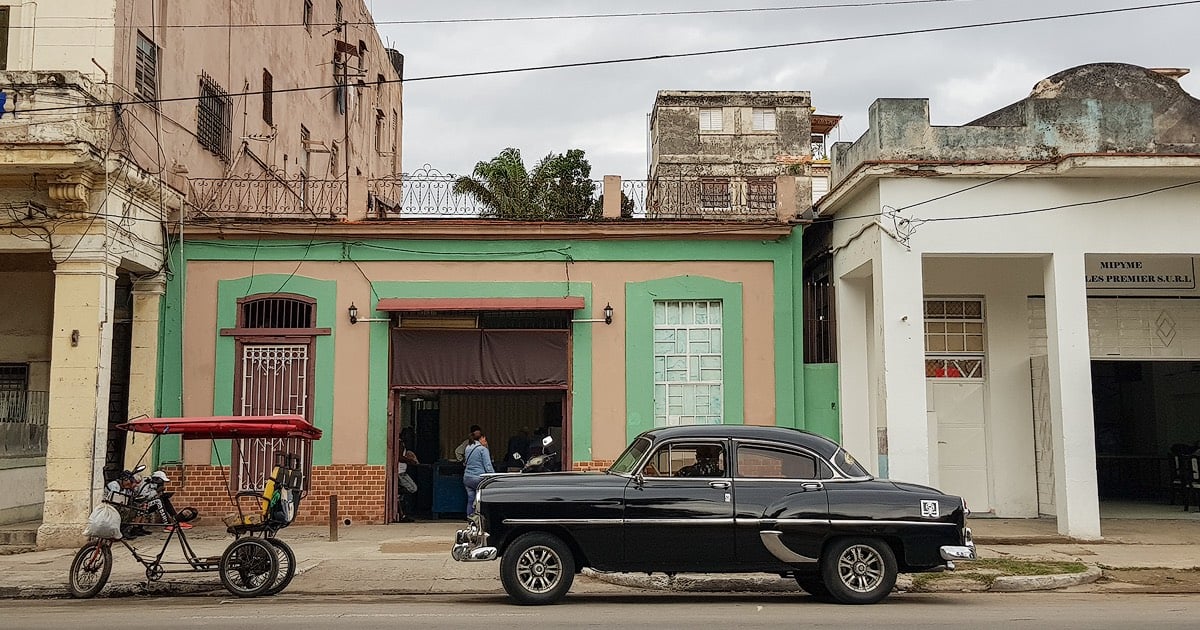The Cuban regime intends to temporarily cap the prices of six essential food items for Cuban citizens: chicken, oil, pasta, powdered milk, detergent, and sausages. This announcement was made by the Minister of Finance, Lourdes Rodríguez, during a recent meeting with representatives of micro, small, and medium-sized enterprises (Mipymes) and the General Directorate of Importation of the Ministry of Foreign Trade. The entrepreneurs were selected through the Tax Administration. "It was the way to reach each one of you," Rodríguez stated.
In the discussion, which was accessed by CiberCuba, the minister revealed that they would cap the retail prices of six items chosen through a survey, where ground meat closely followed sausages. Sausages were ultimately chosen because ground meat can have different origins with significant price differences. Consequently, the maximum retail price of chicken (package of thighs and drumsticks) would be set at 680 pesos per kilogram (310 pesos per pound); powdered milk at 1,675 pesos per kilogram; pasta (spaghetti, etc.) at 835 pesos per kilogram; sausages at 1,045 pesos per kilogram; powdered detergent at 630 pesos per kilogram; and soybean oil at 990 pesos per kilogram. These prices, the minister clarified, "will be made public before their implementation."
The Finance Minister assured that these prices were determined after analyzing the import costs declared by private importers in the second half of 2023 and the first quarter of 2024. This point was highly controversial among the representatives of small and medium-sized enterprises, who argued that in an unstable international context with fluctuating prices, adhering to the government's proposals is challenging, although some expressed their willingness to comply for the population's sake. However, they highlighted three structural problems in the Cuban economy: the distortion of the exchange rate, the tax pressure on Mipymes, and the fuel shortage that complicates the transportation of goods within the island and even the removal of containers from the Port of Mariel.
Temporary Measure Amid Economic Struggles
In any case, the minister framed these price caps, which are not new in Cuba, as measures to contain the accelerating price growth in the economy. Rodríguez clarified that this is a temporary measure because the country's pricing policy is moving towards what she calls "price decentralization," essentially respecting market laws where prices are self-regulated based on supply and demand.
In theory, the measure aims to also curb inflation, which closed May in Cuba at 31%; nearly ten times higher than the 2.6% in Europe and the United States for the same month. To justify why products like oil may become more expensive despite the price caps, the minister explained that this is due to currently "carrying stocks acquired at lower prices at a certain point."
Although she admitted that selling products at the same capped price across the island is challenging, regardless of transport costs (it's not the same to transport goods from Havana to Guantánamo as distributing them in the capital), she acknowledged that this issue does not have a "quick fix."
It was also recognized in the meeting that there is a shortage of products like chicken, oil, and powdered milk, which "cannot be found on the island" at present. Cuban entrepreneurs are concerned about transportation, VAT (Value Added Tax) payments, and whether stores in MLC (Cuban Convertible Peso) will continue to compete with them by offering higher prices, as is the case with many products currently.
At the beginning of the meeting, the Finance Minister referred to a new resolution stipulating that Mipymes supplying state-owned companies cannot earn more than 30% in their commercial exchanges. This regulation, already published in the Official Gazette, establishes, in official jargon, the maximum utility of thirty percent (30%) in the economic contracting of state entities with non-state management forms.
Predictably, the government does not present this as a limitation for Mipymes but for state-owned companies. "It does not restrict income to non-state entities but rather the expenditure of state entities," said the Finance Minister, assuring that in 2023 state-owned companies paid 10,000 million pesos to Mipymes, and by May, that figure was already around 4,000 million pesos. If this trend continues, the state would end the year with 12,000 million pesos in purchases from the private sector.
This regulation, which limits Mipymes' profits to 30%, comes into effect on July 1.
Understanding Cuba's Economic Measures
This section aims to provide clarity on the recent economic measures taken by the Cuban government, particularly focusing on price caps and their implications for the Cuban economy and its citizens.
Why is the Cuban government capping prices on essential goods?
The government is capping prices to control the accelerating price growth and inflation, aiming to make essential goods more affordable for Cuban citizens.
Which products are affected by the price caps?
The price caps affect chicken, oil, pasta, powdered milk, detergent, and sausages.
Are these price caps permanent?
No, the price caps are a temporary measure. The government aims to eventually move towards price decentralization, where prices are regulated by market forces.
What are the challenges faced by small and medium-sized enterprises (Mipymes) in Cuba?
Mipymes face challenges such as the distortion of the exchange rate, high tax pressure, and fuel shortages, which complicate the transportation of goods within the island.
